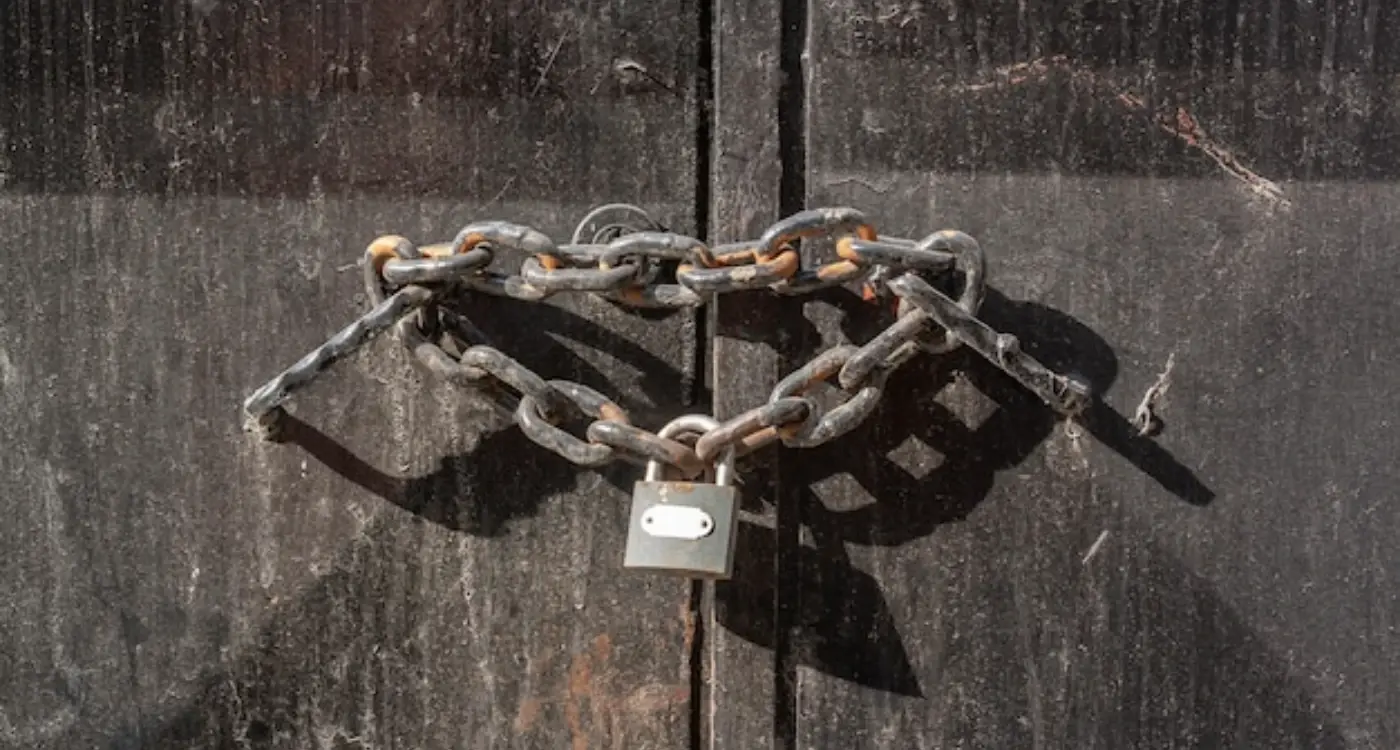How Much Does It Cost To Protect My App's Intellectual Property?
Most app developers spend months perfecting their code, designing beautiful interfaces, and crafting the perfect user experience—only to discover that protecting their intellectual property can cost anywhere from £2,000 to £50,000 or more. The numbers vary wildly depending on what you're protecting and how far you want to go with it. When you've poured your heart, soul, and probably a fair chunk of your savings into creating something unique, the last thing you want is for someone else to copy your idea and profit from your hard work.
The truth is, intellectual property protection for mobile apps isn't just about filing a few forms and paying some fees. It's a complex web of patents, trademarks, copyrights, and ongoing legal expenses that can quickly spiral if you don't plan properly. Some developers skip it entirely—thinking their app isn't worth protecting or that the costs are too high. Others go overboard and spend a fortune on protection they don't really need.
The cost of not protecting your intellectual property is often far greater than the cost of protection itself
Throughout this guide, we'll break down exactly what you can expect to pay for each type of protection, when it makes sense to invest, and where you might be able to save money without compromising your app's security. By the end, you'll have a clear roadmap for protecting your mobile app without breaking the bank.
What Is Intellectual Property For Mobile Apps
When you build a mobile app, you're creating something that belongs to you—and that's where intellectual property comes in. Think of intellectual property (or IP as we call it in the industry) as the legal way of saying "this is mine" when it comes to your app's unique features, design, and functionality.
Your app's intellectual property isn't just one thing; it's actually made up of several different parts. The code you write, the way your app looks, the name you choose, and even how certain features work can all be protected in different ways. I've worked with clients who didn't realise their app icon design was just as important to protect as their core functionality—both matter!
Why App IP Protection Matters
Without proper protection, someone could potentially copy your app's best features, use your branding, or even steal your entire concept. This happens more often than you might think, especially with successful apps that gain traction in the market.
The good news is that some protection happens automatically when you create your app. Copyright protection, for example, kicks in as soon as you write your code. But other types of protection—like trademarks for your app name or patents for unique features—require you to take specific legal steps and yes, spend some money to secure them properly.
Types Of App IP Protection Available
When it comes to protecting your mobile app's intellectual property, you've got three main options to choose from—and each one covers different parts of your app. Think of it like having different locks for different doors in your house; each type of protection secures something specific.
Patents: Protecting Your App's Unique Functions
Patents are for protecting the clever ways your app works. If you've invented a new method for users to interact with your app, or created a unique algorithm that solves a problem, that's patent territory. The thing is, patents are quite expensive and take ages to get approved—sometimes years! They're really only worth it if you've got something genuinely groundbreaking.
Trademarks: Safeguarding Your Brand Identity
Trademarks protect your app's name, logo, and any distinctive sounds or colours you use. This stops other developers from creating apps with confusingly similar names or copying your visual identity. They're much cheaper than patents and usually the first thing most app developers go for.
Copyright protection covers your app's code, graphics, text, and any original content you've created. The good news? Copyright protection starts automatically when you create original work, though registering it officially gives you stronger legal protection if someone copies your stuff.
Start with trademark protection for your app name and logo—it's the most affordable option and gives you immediate brand protection whilst you're still figuring out your other IP needs.
Patent Costs For Mobile Applications
Getting a patent for your mobile app can be expensive—I won't sugarcoat that. The costs vary quite a bit depending on whether you're a small startup or a large company, but let's break down what you're looking at.
Patent application fees start around £280 for small entities, though this can jump to £400 for larger companies. But here's the thing: that's just the beginning. You'll also need to pay for a patent search (around £150-£400) and examination fees (another £100-£150). Most app developers work with patent attorneys because the process is complex, and their fees typically range from £200-£600 per hour.
The Reality Check
All in, you're looking at anywhere from £5,000 to £15,000 for a straightforward app patent—sometimes more if your invention is particularly complex or if you run into complications during the examination process.
Not Every App Needs A Patent
Here's what I tell clients: patents protect specific inventions and processes, not just ideas. Your standard social media app or basic e-commerce platform probably won't qualify for patent protection. You need something genuinely innovative—a new algorithm, a unique technical solution, or a novel way of processing data. Before spending thousands on a patent application, speak with a qualified patent attorney who can assess whether your app actually has patentable elements.
Trademark Protection And Expenses
Trademarks are all about protecting your app's name, logo, and brand identity—basically anything that helps people recognise your mobile app in the marketplace. I've worked with countless clients over the years who've skipped this step initially, only to face problems later when someone else uses a similar name or logo. The good news is that trademark protection is usually the most affordable type of intellectual property protection you can get for your app.
Basic Trademark Costs
In the UK, registering a trademark with the Intellectual Property Office costs around £170 for online applications if you're covering one class of goods or services. Most mobile apps fall under Class 9 (computer software) or Class 42 (software as a service). You'll pay extra for additional classes—each one adds about £50 to your bill. The process takes several months, sometimes up to six months if there aren't any objections.
Getting trademark protection early can save you thousands in legal expenses down the road, especially if you need to rebrand later
Professional Help And Ongoing Costs
Many app developers choose to work with trademark attorneys who charge between £150-£400 per hour for their services. They'll handle the application process, conduct searches to make sure your chosen name is available, and deal with any objections that come up. Once approved, UK trademarks last for 10 years before needing renewal—which costs around £200 for one class. The legal expenses might seem steep initially, but trademark protection is one of the most cost-effective ways to protect your app's brand identity long-term.
Copyright Registration For Apps
Copyright protection kicks in automatically the moment you create something original—your app's code, user interface designs, graphics, and written content are all protected without you having to do anything special. That's the good news! The not-so-good news is that whilst this automatic protection exists, proving you own the copyright when someone copies your work can be tricky without proper documentation.
Registering your app's copyright makes everything much clearer if legal disputes arise. In the UK, you can register your copyright through the Intellectual Property Office for around £35-£45 per work. The US Copyright Office charges about $65 for online applications. These fees cover individual elements like your source code, artwork, or app content—you might need separate registrations for different components.
What Can You Copyright?
You can copyright your app's source code, original graphics, written content, music, and unique visual designs. You cannot copyright ideas, methods of operation, or common interface elements that everyone uses. The registration process typically takes 6-12 months but your protection starts from the date you submit your application.
Many developers skip copyright registration because the automatic protection feels sufficient—and for many apps, it is. But if your app contains particularly valuable or unique creative elements, registration gives you stronger legal ground to stand on and can help recover legal costs if someone infringes your work.
Legal Fees For IP Registration
When it comes to protecting your mobile app's intellectual property, the legal fees can add up quickly—and honestly, they're often the bit that catches people off guard. I've worked with countless clients over the years who budget for the official filing fees but forget about the solicitor costs that come with getting everything done properly.
For patent applications, you're looking at solicitor fees ranging from £3,000 to £8,000 for a straightforward mobile app patent. Complex applications with multiple features can push this much higher. Trademark registration is more wallet-friendly, typically costing between £400 to £1,200 in legal fees, depending on how many classes you're filing under and whether there are any complications along the way.
What Legal Fees Cover
- Initial consultation and IP strategy advice
- Prior art searches and clearance work
- Drafting and filing applications
- Responding to examiner objections
- Prosecution through to grant
Copyright registration is the cheapest option—many solicitors will handle this for £200 to £500. Some firms offer fixed-fee packages for startups, which can help you budget more effectively.
Shop around for IP solicitors who specialise in mobile apps and technology. Their experience can save you money by avoiding common pitfalls and getting applications right first time.
The key thing to remember is that cheaper isn't always better when it comes to legal expenses. A poorly drafted patent application will cost you far more in the long run than paying for quality legal work upfront.
Ongoing IP Protection Costs
Getting your app's intellectual property registered is just the beginning—the real expense often comes from maintaining and defending those rights over time. I've worked with countless clients who budgeted for the initial registration fees but got caught off guard by the ongoing costs that follow.
Maintenance and Renewal Fees
Patents require regular maintenance fees to keep them active; in the UK these are due at the 4th, 8th, and 12th year marks and can cost anywhere from £70 to £400 each time. Trademarks need renewing every 10 years at around £200 per class, whilst copyrights thankfully don't require renewal fees—they last for decades automatically.
Monitoring and Enforcement Costs
Here's where things get expensive. You'll need to monitor the market for potential infringers, which many businesses do through specialised services costing £500-2000 annually. If you discover someone copying your app, enforcement action can range from sending cease and desist letters (£500-1500) to full litigation proceedings that can easily reach £50,000 or more.
The harsh reality is that IP protection isn't a one-time expense—it's an ongoing investment that requires careful budgeting and strategic thinking about which battles are worth fighting. This is particularly crucial for developers who need to protect their app ideas during development whilst keeping costs manageable.
Conclusion
After working with countless clients over the years, I can tell you that protecting your mobile app's intellectual property doesn't have to break the bank—but it does require some planning. The costs we've covered range from a few hundred pounds for basic trademark registration to several thousand for comprehensive patent protection, and the right choice depends entirely on your app's unique circumstances.
Most app developers I work with find that a combination of copyright registration and trademark protection gives them solid coverage without the hefty price tag of patents. Copyright is automatic and cheap to register formally, whilst trademarks protect your brand identity—often the most valuable part of your app business anyway. Patents are brilliant for truly innovative technical features, but they're expensive and take ages to process.
The legal expenses you'll face depend on whether you handle simple registrations yourself or hire solicitors for the complex stuff. My advice? Start with the basics like trademark registration and formal copyright documentation, then consider patents only if you've got genuinely novel technology worth protecting. Don't forget about ongoing costs either—trademark renewals and monitoring services add up over time, but they're usually manageable compared to the initial investment in getting your intellectual property protection sorted properly.
Share this
Subscribe To Our Learning Centre
You May Also Like
These Related Guides

How Do I Protect User Privacy With Voice Data in My App?

How Can You Future-Proof Your Mobile App's API Security?



